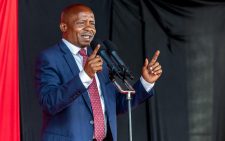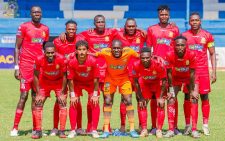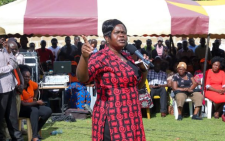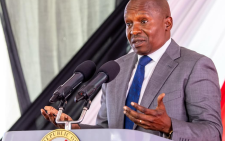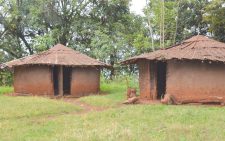From sex workers to trainers of GBV survivors
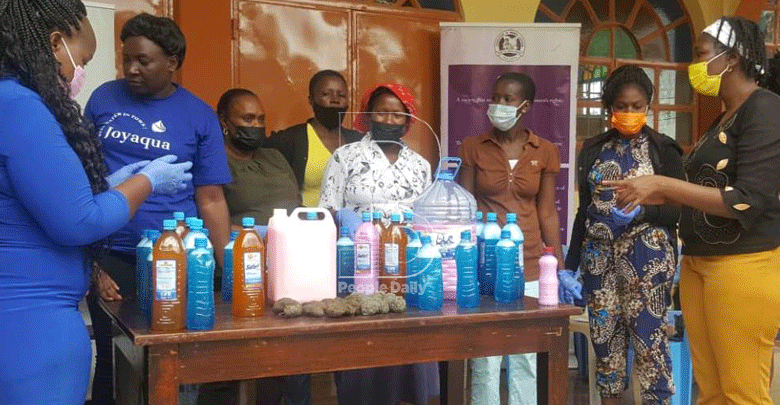
For many sex workers, work is often dangerous and with Covid-19 impact, many of them continue to suffer loss of income and increasing discrimination, harassment, and violence.
Mary Wambui, 32, who has been a sex worker in Mombasa county for the last 10 years, says Covid-19 was the beginning of the end of a career she has had for a better part of her adult life.
Wambui says when the first case of Covid-19 was reported in the country, and immediately followed by government restrictions to curb its spread, she was rendered jobless, as brothels where she used to meet her clients were ordered closed.
Though for many occasions she had contemplated quitting sex work, due to the risks involved, Covid-19 drove her away from it.
“I saw it as an opportunity to work on myself, now that there were no more clients to keep me in business. I decided to hang my boots and look for other means to earn a living,” she says.
Wambui adds that though she was almost tempted to go back by clients whom she had served for so many years, she decided to remain put after undergoing training at Nkoko Ijuu Africa on soap making, kitchen gardening and making charcoal briquettes.
Nkoko Ijuu Africa is a community-based organisation working in Mombasa, Kilifi and Kwale counties to champion the rights of sex workers through advocacy, capacity building and economic empowerment.
“When I sought help at the organisation and told the board that I was tired of working as a sex worker, I was trained on other activities that would enable me earn a living,” she adds.
Wambui underwent training for three months and at the same time took counseling classes that enabled her fully recover from violence, and stigma associated with sex work.
“In the course of the training, I changed my phone numbers, I moved houses and avoided friends who kept on tempting me to go back to the streets. After the three months, I left the institution as a new person,” said wambui.
With the training she received, Wambui, alongside other reformed sex workers are now working with the Federation of women Lawyers (FIDA) to offer training to domestic violence victims in income generating projects under the programme themed Search For Common Ground funded by United States Agency for International Development (USAID).
Under this programme established last year, Wambui says she has managed to train women rescued from their homes due to increasing cases of domestic violence.
“I have trained over a 100 women, in batches of 10, on making soap and cleaning detergent and other means through which they can earn a living and sustain their lives,” she says.
Another beneficiary of the programme is Shaban Omar, 44, also a former sex worker.
Omar says he quit sex work after he became sick two years ago. He had begun sex work in 1990 due to poverty, and is now enrolled in the FIDA programme to train women on income earning projects.
“I joined the women network, as a reformed male sex worker and I am now championing for women rights and training women undergoing abuse on ways to earn themselves a living and manage small business,” he adds.
Omar says though he regrets having worked as a sex worker for many years, he is ready to create awareness among young women on the need to stay away from the trade.
“I would never wish to see any one work as a sex worker, that is why in the course of training women here I find time to create awareness that stay away from it since the only gift I received was being infected with HIV,” he says.
Nkoko Ijuu Executive Director Maryline Laini says over 100 sex workers are undergoing various programmes.
“Sex workers are our siblings, parents and relatives and our children. Most of them join the trade because they were defiled, and left with responsibility of taking care of children and yet they themselves are children without any skills, to get into business or get any employment.
With this they are easy target for rape, physical violence, illegal arrest, and are suicidal. They even lack experience to negotiate condom use with clients, making them vulnerable to HIV infections.
As a person who experienced defilement and went through the same, I relate to the issues of young sex workers,” she says. The aim is to ensure they get hands-on skills to generate income.
“We empower sex workers with skills on alternative income generating activities such as baking, detergents making, kitchen gardening, mat making and chicken farming,” she adds.
Besides these activities, the organisation also provides support to sex workers when they face violence or eviction from their homes.
“We also lobby other stakeholders to make sure issues affecting sex workers are addressed.
We also encourage and get them tested to know their status and protect themselves by constantly adhering to pre-exposure prophylaxis or ARVs.
We also do peer to peer, counselling to reduce mental issues,” she adds.
FIDA Kenya psychosocial client service officer, Mombasa Branch Everlyne Atieno says the programme has come with many benefits for the paticipants, some of whom have had a mind shift on economic skills.
“Most of them have learnt that they have skills unlike before, and in utilising these skills, they will make money.
They have also realised they can achieve more in groups and are able to take care of theirselves and their children without depending on others,” she adds.
From the programme, they have also were able to pinpoint challenges the victims of domestic violence face, including lack of capital to start their business, need for financial training especially on money management and skills.
“They also need more psychosocial support on self image and self care and training to upgrade themselves on more skills beyond retail trade,” she says in conclusion.

